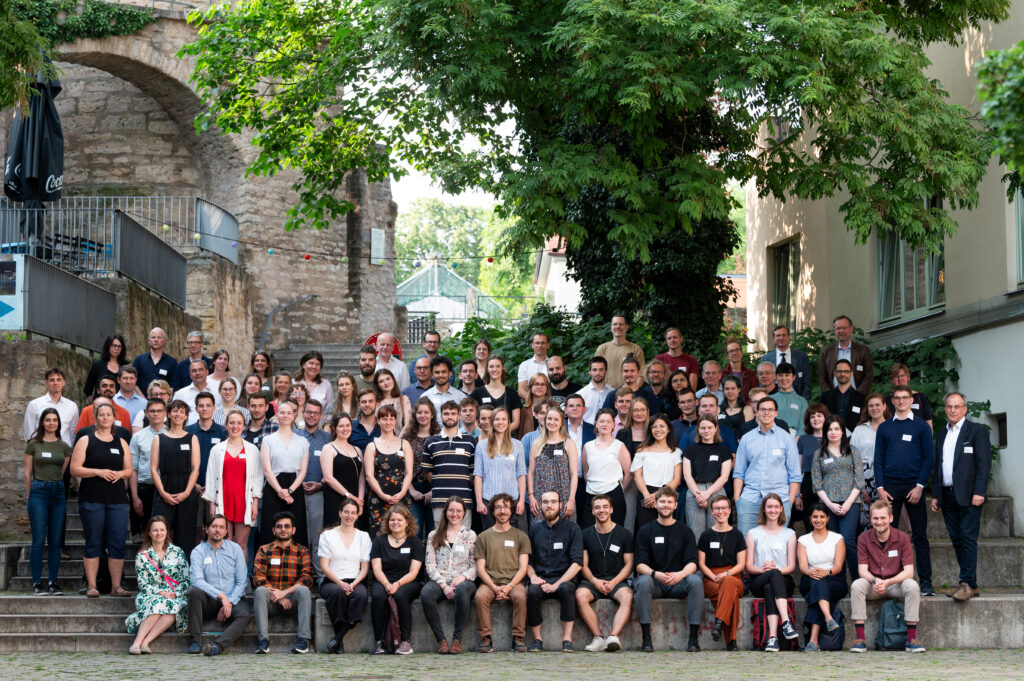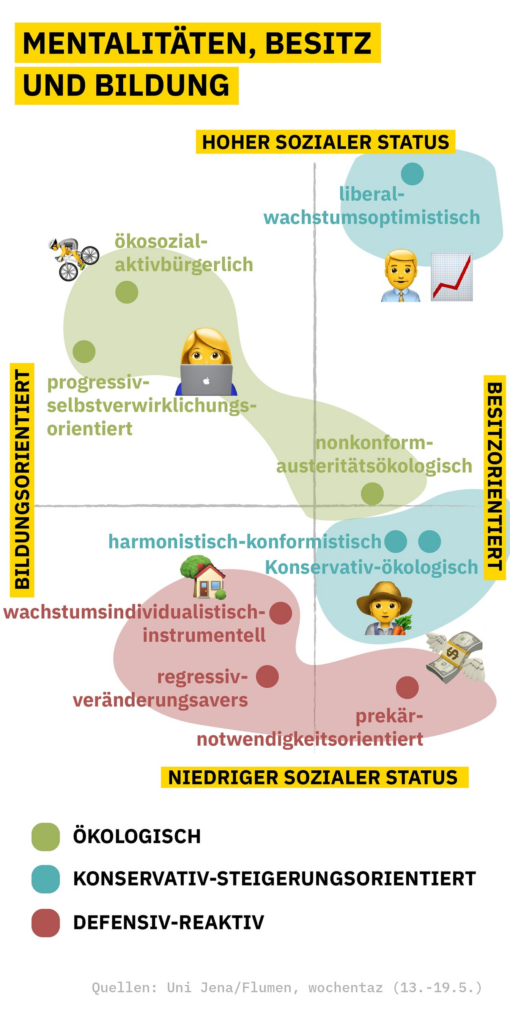Presentation of the “BioMentalitäten” survey by the BMBF junior research group flumen followed by a panel discussion.
On 21 September 2023 at 6-7:30 p.m. in the Rosensäle (R 101), Fürstengraben 27, Jena

Many people are concerned about nature and our future on this planet. At the same time, most people shy away from the idea of a comprehensive change in lifestyle, which scientists now consider inevitable in order to be able to mitigate the climate and biodiversity crisis and to cope with its consequences. Moreover, not only in politics, but also among the population, groups with opposing ideas and approaches seem to be increasingly irreconcilable. This is evident in recent times in an increasing number of contended issues: Climate protests, energy transition, renaturation of agricultural land, speed limit, phasing out the internal combustion engine. These issues are not only about what social changes are necessary, but also about different ideas of freedom and prosperity, different expectations of justice, social and political participation, in short: the diverse ideas of a good life and the question of whether this is threatened by the measures under discussion. The different perception and evaluation of ecological issues and the positioning in these conflicts is closely related to how people are integrated in society, what they have to gain or lose, but also to the extent to which they feel seen, heard and effective in politics and the public sphere.
Answers to what the conflict about a future worth living is really about and whether it could divide society are provided by the “BioMentalities” survey of the BMBF junior research group “Mentalities in Flux (flumen)” at the Institute of Sociology at Friedrich Schiller University Jena, which will be presented and discussed at a public event in the Kleine Rosensäle (Fürstengraben 27) on 21 September 2023. First, the most important results of the survey will be presented, for which 4,000 people in Germany were interviewed in 2021 and 2022 about their socio-ecological attitudes and habits. The focus is on a “map” of socio-ecological mentalities, which shows how different parts of the population feel about concepts of a comprehensive transformation towards post-fossil production and lifestyles, how this relates to their respective position in society, and which lines of conflict can be identified from this.
Afterwards, Malene Gürgen (taz) will moderate a discussion between Dr. Dennis Eversberg (flumen), Prof. Dr. Daniela Gottschlich (Hochschule für Gesellschaftsgestaltung), Teresa Gärtner (ver.di Jena) and Robert Pauli (Klimaentscheid Jena) about pro-ecological and anti-ecological mentalities, social milieus and the social-ecological transformation conflict in society as a whole as well as on the ground in Jena and Thuringia.
The event will be in German.





